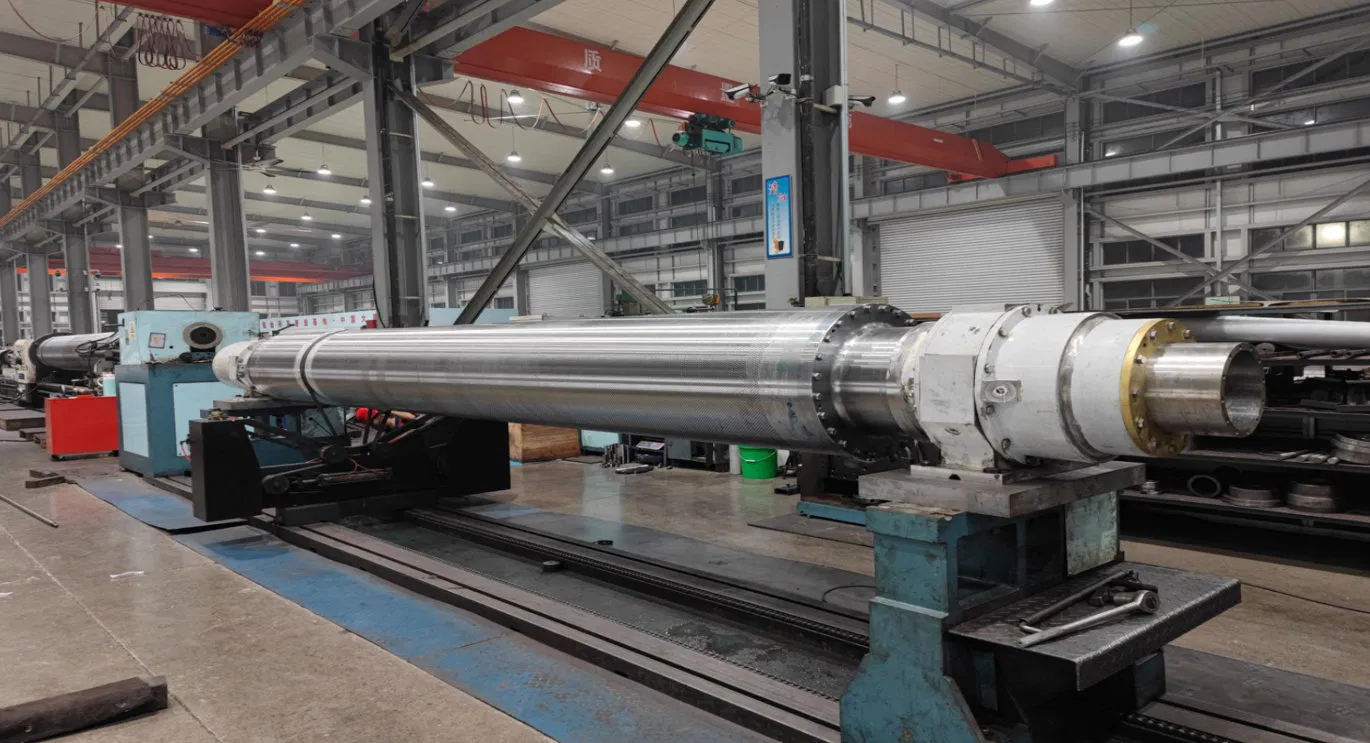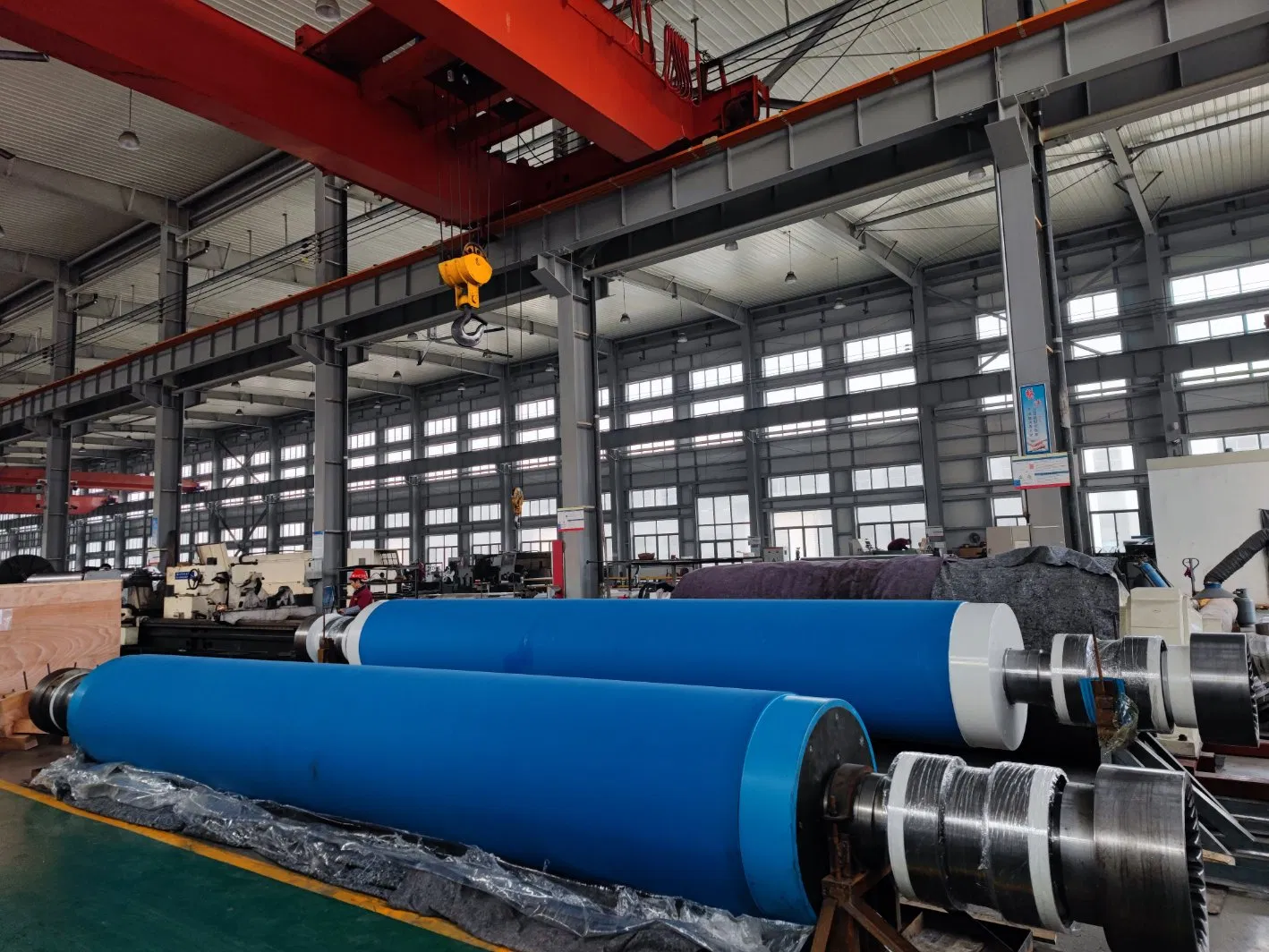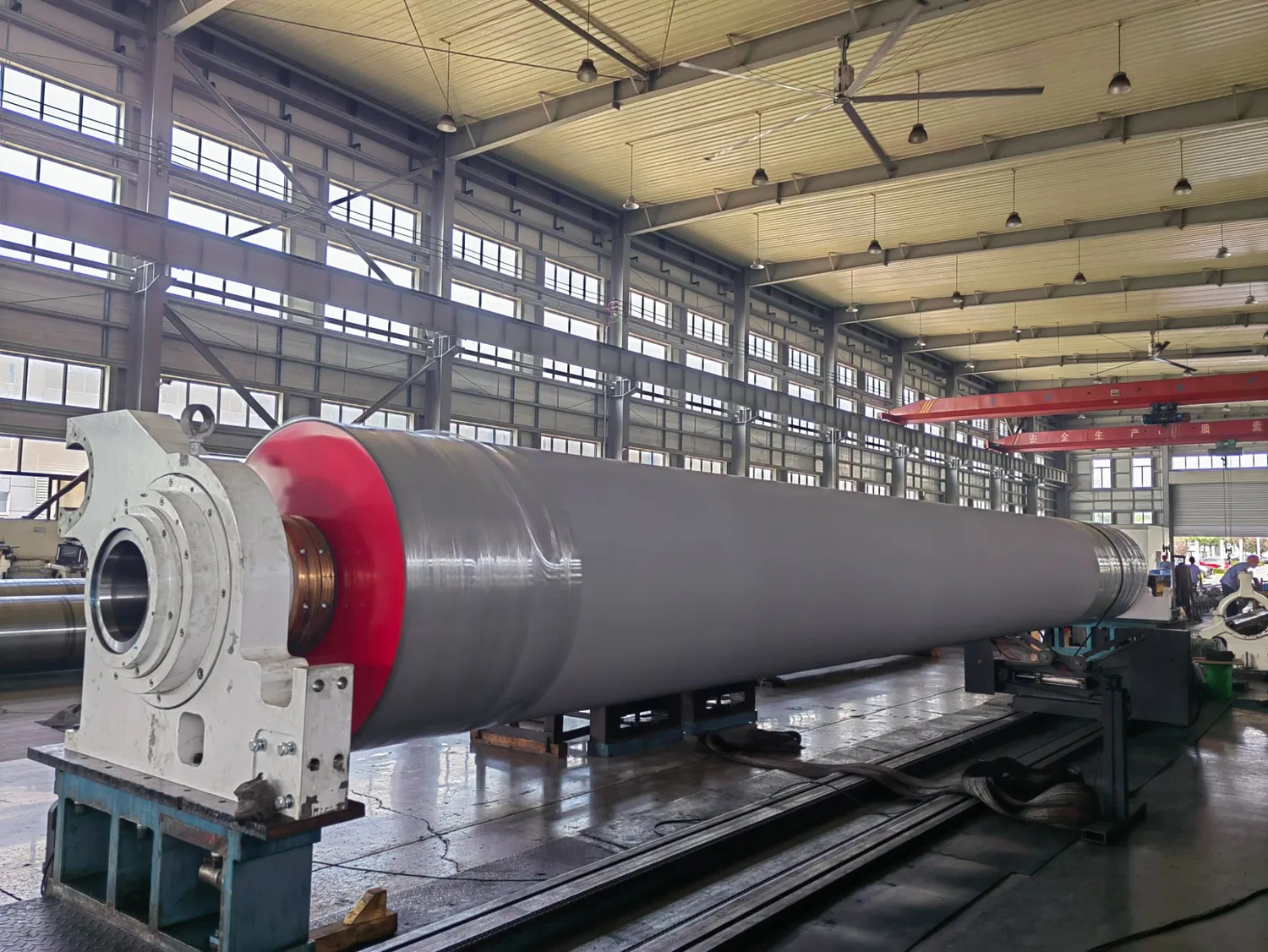Have you ever stopped to consider the intricate journey a simple sheet of paper takes from raw pulp to the smooth, finished product you hold in your hand? It’s a marvel of modern engineering, a continuous dance of machinery, heat, and pressure. At the heart of this complex process, literally and figuratively, are paper machine rolls. These aren't just any cylinders; they are precision-engineered components that dictate everything from the paper’s thickness and smoothness to its strength and consistency. But here’s the kicker: standard, off-the-shelf rolls often fall short when it comes to meeting the unique demands of specialized paper grades or high-speed production lines. This is precisely where the expertise of a dedicated custom paper machine roll manufacturer becomes not just beneficial, but absolutely essential.
Frankly speaking, in an industry where margins can be tight and quality is paramount, relying on generic solutions can be a costly mistake. The right roll, tailored to your specific operational parameters and product requirements, can unlock unprecedented levels of efficiency, reduce downtime, and significantly improve the final product quality. This article will delve deep into the world of custom paper machine rolls, exploring why customization is key, what to look for in a top-tier manufacturer, and the tangible benefits of investing in bespoke solutions for your pulp and paper operations.
The Critical Role of Paper Machine Rolls in Production
To be honest, the unsung heroes of any paper mill are arguably its rolls. From the wet end to the dry end, these cylindrical workhorses perform a myriad of critical functions that are indispensable to the paper-making process. Think about it:
- Forming Section: Here, rolls help dewater the pulp slurry, forming the initial paper web. Suction rolls, couch rolls, and breast rolls are just a few examples, each designed to manage water removal efficiently while supporting the fragile web.
- Press Section: In this stage, rolls apply immense pressure to squeeze out more water, compacting the paper web and increasing its dry content. Press rolls, often covered with specialized materials, are crucial for uniform dewatering and sheet consolidation.
- Dryer Section: While dryer cans are essentially heated rolls, other rolls like guide rolls and felt rolls ensure the paper web tracks correctly through the vast dryer section, preventing wrinkles and breaks.
- Calender Section: Post-drying, calender rolls smooth and densify the paper surface, imparting desired gloss, thickness, and printability. The precision of these rolls directly impacts the final aesthetic and functional properties of the paper.
The quality and performance of each roll directly impact the efficiency of the entire paper machine and, ultimately, the quality of the finished paper. A poorly balanced roll can cause vibrations, leading to sheet breaks and uneven profiles. An incorrect surface coating can result in adhesion issues, wear, or damage to the paper. This is why the notion of "one size fits all" simply doesn't apply in the high-stakes environment of paper manufacturing. Each paper grade—be it fine printing paper, robust packaging board, or absorbent tissue—has unique requirements for its processing, demanding specific roll characteristics. This inherent complexity underscores the vital need for solutions that go beyond the standard catalog, paving the way for the specialized offerings of a custom paper machine roll manufacturer.
Why Customization is Key: Tailoring Rolls for Peak Performance
Interestingly enough, the paper industry is constantly evolving. New paper grades emerge, production speeds increase, and environmental regulations become stricter. These dynamics create specific challenges that generic rolls simply cannot address. This is where the power of customization truly shines.
Consider the diverse range of paper products. Producing high-gloss magazine paper requires different roll surface finishes and materials than, say, manufacturing corrugated cardboard. High-speed tissue machines demand rolls with exceptional dynamic balance and vibration dampening capabilities. Furthermore, the operational environment within a paper mill—high temperatures, humidity, and exposure to various chemicals—necessitates rolls built from specific materials and coatings designed to withstand these harsh conditions and resist wear.
The science behind custom rolls is fascinating. It involves a deep understanding of:
- Materials Science: A top-tier manufacturer will advise on the optimal core materials (e.g., steel, cast iron, composite) and surface coatings (e.g., rubber, polyurethane, ceramic, chrome) to meet specific performance criteria. For instance, a ceramic coating might be chosen for its extreme hardness and wear resistance in high-abrasion areas, while a specialized rubber cover could be selected for its elasticity and dewatering properties in a press section.
- Precision Engineering: This is non-negotiable. Custom rolls are designed with exacting tolerances for dimensions, concentricity, and surface finish. Even microscopic imperfections can lead to significant issues at high operating speeds. Furthermore, dynamic balancing is critical to prevent vibrations that can cause sheet breaks, reduce bearing life, and compromise paper quality. Many experts agree that investing in precisely engineered precision paper mill rollers pays dividends in the long run.
- Thermal Management: Rolls often operate at elevated temperatures, and uniform temperature distribution across the roll face is vital for consistent paper quality. Custom designs can incorporate internal cooling or heating systems to maintain optimal operating temperatures.
In my experience, the ability to tailor every aspect of a roll—from its internal structure to its external coating—is what differentiates a truly effective solution from a mere component. It’s about creating a roll that is an extension of your specific machine and production goals, ensuring peak performance and longevity.

The Expertise of a Leading Custom Paper Machine Roll Manufacturer
So, what exactly defines a leading custom paper machine roll manufacturer? It’s far more than just having the machinery to turn a piece of metal. It’s about a blend of deep industry knowledge, cutting-edge technology, and an unwavering commitment to quality and client collaboration.
A truly exceptional manufacturer offers a comprehensive suite of capabilities that extends beyond mere fabrication:
- Design and Engineering Prowess: They don't just build to spec; they partner with you to understand your challenges and design solutions. This involves advanced CAD modeling, finite element analysis (FEA) to predict stress and deflection, and simulations to optimize roll performance under various operating conditions. They can reverse-engineer existing rolls or design entirely new ones from scratch.
- Advanced Manufacturing Facilities: This includes state-of-the-art CNC machining for extreme precision, specialized grinding and polishing equipment to achieve desired surface finishes, and sophisticated dynamic balancing machines that can handle rolls of immense size and weight. The ability to apply a wide range of coatings, from thermal spray ceramics to custom rubber compounds, is also crucial.
- Rigorous Quality Control: Every stage of the manufacturing process, from material inspection to final dimension checks, must adhere to stringent quality standards. This includes non-destructive testing (NDT) methods like ultrasonic testing and magnetic particle inspection to detect internal flaws, and precise measurement tools to verify every critical dimension.
- Repair, Reconditioning, and Maintenance Services: A full-service manufacturer understands that rolls require ongoing care. They offer expert repair of damaged rolls, reconditioning services (re-grinding, re-covering), and often provide predictive maintenance advice to extend roll life and prevent unexpected failures. This holistic approach ensures your investment is protected and optimized over its entire lifecycle.
I’ve found that the best manufacturers are those who view themselves as an extension of your engineering team. They ask probing questions, visit your facility to observe operations, and leverage their vast experience to anticipate potential issues. They are not just suppliers; they are problem-solvers, dedicated to crafting bespoke industrial rolls for paper production that deliver tangible improvements. This collaborative spirit is, frankly, invaluable.
The Customization Process: From Concept to Commissioning
The journey of a custom paper machine roll from an initial idea to a fully operational component in your mill is a meticulous process, demanding close collaboration and technical excellence at every stage. It’s not just about manufacturing; it’s about a partnership.
The process typically unfolds as follows:
- Initial Consultation and Needs Assessment: This is the crucial first step. The manufacturer will engage with your team to understand your specific challenges, machine specifications, paper grades, desired outcomes (e.g., increased speed, improved paper quality, reduced energy consumption), and any existing roll performance issues. They might conduct on-site inspections or analyze data from your current operations.
- Design and Engineering Phase: Based on the assessment, their engineering team will develop detailed designs. This involves selecting the optimal core material, determining the precise dimensions, designing internal structures for strength and thermal management, and specifying the ideal surface coating. Advanced software like CAD (Computer-Aided Design) and FEA (Finite Element Analysis) are extensively used to model the roll’s behavior under operational loads and predict its performance. This ensures the design is robust and perfectly suited to its application.
- Material Sourcing and Preparation: Once the design is finalized, high-quality raw materials are sourced. This might include specialized steel alloys for the roll body, and specific polymers or ceramics for the cover. Each material undergoes rigorous inspection to ensure it meets the required specifications.
- Manufacturing and Quality Control: This is where the physical creation takes place. The roll body is precisely machined, often on large-scale CNC lathes, to achieve the exact dimensions and tolerances. If a cover is required, it is applied using specialized techniques (e.g., vulcanization for rubber, thermal spraying for ceramics). Throughout this stage, continuous quality checks are performed, including dimensional measurements, surface roughness checks, and non-destructive testing. A critical step is dynamic balancing, where the roll is spun at high speeds to detect and correct any imbalances, ensuring smooth operation and preventing vibrations.
- Testing and Validation: Before shipment, the finished roll undergoes final testing to confirm it meets all design specifications and performance criteria. This might include hardness tests for covers, adhesion tests, and final dimensional verification.
- Installation and Ongoing Support: While the manufacturer might not always handle installation directly, they often provide technical guidance and support during commissioning. Furthermore, a good manufacturer offers post-sales support, including troubleshooting, maintenance advice, and reconditioning services to maximize the lifespan and performance of the custom roll.
It’s worth noting that this comprehensive process ensures that every custom roll is not just a component, but a highly optimized solution engineered to enhance your specific paper production line.

Benefits of Partnering with a Specialized Manufacturer
The decision to invest in custom paper machine rolls and partner with a specialized manufacturer is a strategic one that yields significant returns. The benefits extend far beyond simply having a roll that fits your machine; they impact your entire operation’s bottom line and competitive edge.
Here are the key advantages:
- Enhanced Paper Quality and Consistency: Custom rolls are designed to optimize specific parameters like dewatering, pressing, and surface finishing. This leads to more uniform paper profiles, improved strength, better printability, and overall higher quality products that meet stringent customer demands.
- Reduced Downtime and Maintenance Costs: Precisely engineered and balanced rolls, made from the right materials, are inherently more reliable. They experience less wear, fewer vibrations, and are less prone to unexpected failures. This translates directly into fewer unscheduled shutdowns, lower repair costs, and increased operational uptime.
- Increased Production Efficiency and Throughput: Rolls optimized for your specific machine and process can handle higher speeds and greater loads without compromising quality. This boosts your production capacity, allowing you to produce more paper in less time, directly impacting your profitability.
- Extended Roll Lifespan: By selecting materials and coatings specifically designed for your operating conditions and applying precision manufacturing techniques, custom rolls often have a significantly longer operational life compared to generic alternatives. This reduces the frequency of replacements and the associated capital expenditure.
- Problem-Solving for Unique Challenges: Whether you're dealing with persistent sheet breaks, uneven moisture profiles, or excessive wear in a particular section, a custom paper machine roll manufacturer can engineer a solution. They bring expertise to the table that can diagnose and rectify issues that off-the-shelf components simply cannot. This is particularly true for complex issues requiring specialized pulp and paper machinery components.
- Optimized Energy Consumption: Efficient dewatering in the press section, for instance, reduces the energy required in the dryer section. Custom rolls can be designed to maximize this efficiency, leading to tangible energy savings over time.
In essence, partnering with a specialized manufacturer isn't just about buying a product; it’s about investing in a solution that drives operational excellence, improves product quality, and strengthens your competitive position in the market. The return on investment (ROI) from such a partnership is often substantial and long-lasting.

Conclusion
The paper industry, while ancient in its roots, remains a vibrant and technologically advanced sector. At its core, the quality and efficiency of paper production hinge on the performance of its critical components, none more so than the paper machine rolls. As we’ve explored, the days of generic solutions are largely behind us, especially for mills striving for peak performance and superior product quality.
The role of a dedicated custom paper machine roll manufacturer has thus become indispensable. They are the silent partners who, through their engineering prowess, material science expertise, and precision manufacturing capabilities, enable paper mills to overcome challenges, enhance efficiency, and produce paper that meets the exacting demands of today’s market. From improving dewatering to ensuring a flawless finish, custom rolls are the unsung heroes driving the industry forward.
So, as you consider the future of your paper production, ask yourself: are your rolls truly optimized for your unique needs, or are they holding back your potential? The answer might just lead you to the transformative power of custom solutions.
For more detailed information, please visit our official website:custom paper machine roll manufacturer
About the author: Dr. Evelyn Reed is a seasoned expert in industrial machinery and materials science, with over two decades of experience specializing in the pulp and paper industry. Her work focuses on optimizing manufacturing processes through precision-engineered components. Dr. Reed has consulted for numerous leading paper mills worldwide, helping them enhance efficiency and product quality through custom solutions. She is passionate about the intersection of advanced engineering and sustainable industrial practices.


